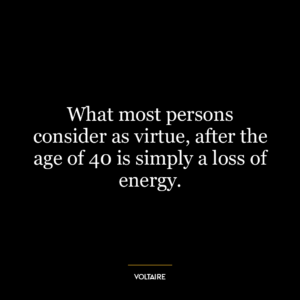Paradise was made for tender hearts; hell, for loveless hearts.
This quote is a profound statement about the nature of compassion, love, and the consequences of their absence. It suggests that Paradise, often synonymous with ultimate happiness and peace, is destined for those with tender hearts. Here, “tender hearts” refers to people who are compassionate, loving, and kind. They are the ones who empathize with others, show kindness, and spread love. According to Voltaire, these are the traits that make us worthy of a blissful existence.
On the contrary, “hell” is reserved for “loveless hearts”. These are individuals who lack empathy, kindness, and most importantly, love. The absence of these virtues leads to a life of suffering, symbolized by hell. The quote implies that a life devoid of love and compassion is a torment in itself, akin to living in hell.
Applying this idea to today’s world, one could argue that it serves as a moral compass guiding us towards empathy and love. In a world often riddled with conflict, hatred, and indifference, nurturing a tender heart could be our ticket to creating a personal paradise, a life filled with happiness and peace.
In terms of personal development, this quote can be seen as a reminder to cultivate compassion and love, not just for others, but also for oneself. It encourages individuals to foster empathy and kindness, suggesting that these traits will lead to a more fulfilling and peaceful life. It also warns of the personal turmoil that can result from harboring a “loveless heart”, highlighting the importance of love in personal growth and well-being.
In essence, the quote is a call to action for individuals and society at large to prioritize love and compassion, hinting at the potential rewards and consequences in the form of paradise or hell.













